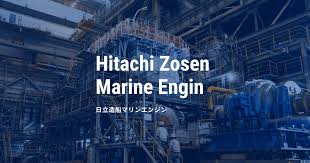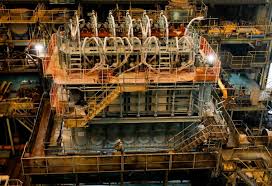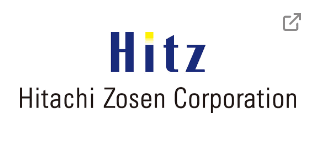On 17 September 2024, Hitachi Zosen Corporation, along with its subsidiaries Hitachi Zosen Marine Engine and IMEX, submitted an interim report to Japan’s Ministry of Land, Infrastructure, Transport and Tourism regarding the falsification of fuel consumption data for marine engines produced by the group. In response, the Ministry has instructed the Hitachi Zosen Group to further investigate the impact of the altered data on related regulations and to provide additional reports.
For all newly manufactured engines from both companies, the Ministry has mandated strict NOx (nitrogen oxide) emissions testing as part of corrective measures. These tests will be conducted under the supervision of inspectors to ensure compliance, with certification issuance resuming only after confirmation of these emissions standards.
Text by Hiro Yamamoto
Photo courtesy of Hitachi Zosen Corporation, Hitachi Zosen Marine Engine

The engines in question include 959 units from Hitachi Zosen Marine Engine and 416 units from IMEX. Of these, fuel consumption data was falsified for 959 Hitachi Zosen Marine Engine units and 412 IMEX units.
The interim report also revealed that, when recording exhaust gas concentration values, incorrect figures—different from the actual measurements—were entered for 343 out of the 959 Hitachi Zosen Marine Engine units, and for 57 out of the 416 IMEX units.
The report noted that both companies within the Hitachi Zosen Group have been providing reports and explanations on the fuel consumption irregularities to their clients, including shipbuilders, shipowners, and shipping companies. As of 10 September, approximately 280 inquiries had been received from customers.
The issue of falsified fuel consumption data has garnered attention from both domestic and international shipowners and operators, who are closely monitoring developments.
The full extent of the impact, particularly in terms of carbon dioxide emission calculations under schemes such as the EU Emissions Trading System (EU-ETS), remains uncertain. This applies not only to engines scheduled for future shipment but also to those already in operation. Data management companies working with shipping firms are currently investigating the implications of the falsified fuel consumption figures, as this data will play a key role in compliance with the EU-ETS and the FuelEU Maritime initiative, set to launch next year.

■Investigation Methods Concerning the Impact on EEDI, EEXI, and Engine Safety
The EEXI (Energy Efficiency Existing Ship Index) regulations, which came into effect in 2023, apply to vessels engaged in international voyages that are already in service. Additionally, the EEDI (Energy Efficiency Design Index) regulations are applicable to ships contracted for construction after 2013. The calculation of EEDI and EEXI involves factors such as the fuel consumption rate and power output of the main engine, as well as the fuel consumption of auxiliary engines, propulsion efficiency improvement devices, energy-saving equipment, loading capacity, and vessel speed. Japan’s Ministry of Land, Infrastructure, Transport and Tourism is currently verifying whether there is any impact and, if so, the nature of that impact.
Engines subject to this verification include those used in vessels engaged in international voyages, specifically 954 units from Hitachi Zosen Marine Engine and 398 units from IMEX, among the engines being investigated.
〆Energy Efficiency Existing Ship Index (EEXI)
A framework for evaluating the energy efficiency of specific types of vessels over 400 gross tonnage (GT) engaged in international voyages, on a per-ship basis.
〆Energy Efficiency Design Index (EEDI)
An index designed to quantify the CO2 emissions of new vessels over 400 GT engaged in international voyages, based on the amount of CO2 estimated to be emitted per ton of cargo transported over one mile under certain conditions during the ship’s design and construction phase, thus differentiating the fuel efficiency of vessels.
〆日立造船は日本の国土交通省に舶用エンジンのデータ改ざんに関する中間報告を提出した。
日立造船(Hitachi Zosen Corporation)と同社グループの舶用エンジン事業を手掛ける日立造船マリンエンジン(Hitachi Zosen Marine Engine)、アイメックス(IMEX)は2024年9月17日、同社グループが製造する舶用エンジンの燃料消費率のデータ改ざんに関する中間報告を国土交通省に提出した。国交省では、関連規制への影響調査実施や報告などを日立造船グループに改めて指示した。
今後新たに製造される2社製エンジンについて、測定現場の是正確認の一環として、当分の間、NOx(窒素酸化物)放出量確認試験を検査官の立ち会いの下で厳格に行った上で、証書の交付を再開する。
(Text by Hiro Yamamoto)
Photo courtesy= Hitachi Zosen Corporation、 Hitachi Zosen Marine Engine
対象エンジンは日立造船マリンエンジン分が959台、アイメックス分は416台である。このうち日立造船マリンエンジン分959台、アイメックス分412台でそれぞれ、燃料消費量の計測データが改ざんされていた。
※続きは日本海事新聞で読めます。
